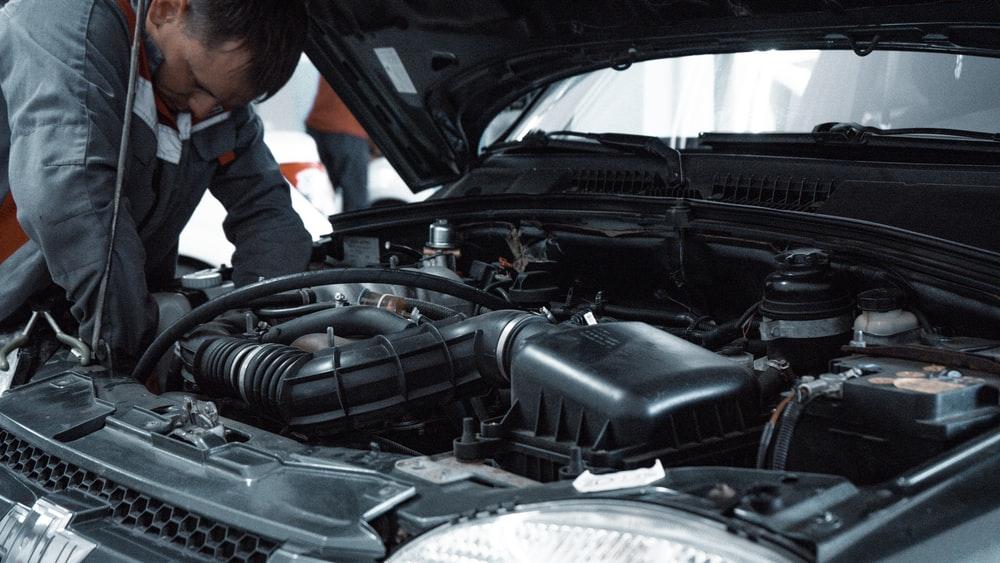Texas State Inspection for Vehicles

Whether you recently moved to the Lone Star state or it is that time of the year again, Texas state inspection for vehicles is a requirement that every driver has to fulfill.
The purposes of these annual inspections are to make sure all registered vehicles in Texas comply with the state’s safety standards to ensure each vehicle is fit to drive while keeping everyone safe on the road. It is also a great opportunity for car owners to find and fix any issues they might have not been aware of otherwise. These problems can be fixed before they transform into even bigger issues, leading to expensive repair bills or an inoperable vehicle.
Though vehicle safety inspections are mandatory throughout the state, emissions testing of vehicles is required in 17 Texas counties in order to fulfill clean air requirements authorized by the federal government. Every Texas state inspection for vehicles is performed by DPS-licensed official Vehicle Inspection Stations.
Keep scrolling to learn what the Texas emission and safety test requires from car owners for a successful inspection.
Texas State Inspection for Vehicles: What’s Checked?
During the examination, anything and everything that’s related to the safety of your car as well as the safety of others around you will be inspected. The list of things inspected includes, but isn’t limited to:
- Headlights, indicator lights, stop lights and hazard lights
- Steering system and components
- License plate lamp
- Windshield wipers
- Braking system
- (including parking and foot brakes)
- Tires (including tire tread depth)
- Mirrors (rearview and side)
- Horn
- Rear red reflectors
- Wheel assembly
- Window coating and tint
- Exhaust system
- Seatbelts and airbag system
- Exhaust emission system and gas caps (for gasoline vehicles 2 –24 model years old)
- Vehicle/motor/serial identification number
Although the car inspection isn’t too exhaustive and the entire process takes roughly 15 to 30 minutes to complete, the inspector will examine/test all of the aforementioned components and more. Therefore, ensure everything is in proper working condition. Even if a single component fails, your car won’t pass the inspection.
To prevent such a scenario, we strongly recommend you perform a pre-inspection of your car at home or take the vehicle to an expert like Kwik Kar. This way you can get anything repaired or replaced before taking the vehicle for the state inspection. Not only will you be able to avoid failure, you’ll also be spared from worrying about whether or not you’ll get the needed repairs done in time and most importantly, save yourself from repaying the inspection fee.
Common Reasons for Failed Vehicle Inspections
There are several reasons why your car may not pass a vehicle inspection in the state of Texas, even if it did so last year. Just like everything, over time cars can start to succumb to the wear and tear of everyday use, and the probability that a repair is required only increases with each passing mile and day. In a nutshell, it all simply depends on the age of your vehicle and its level of condition/maintenance.
Somebody who drives their car in town to run errands might not reach the point where restorations are necessary. However, the chances of repairs will be relatively higher for somebody who uses their car extensively or commutes via a particularly grueling route.
That said, below we have shared a few of the most common reasons car owners fail their vehicle inspection test in Texas:
- Burned-out or damaged lights
- Broken or damaged windshield wipers– One of the most easily overlooked components, especially if it has not rained lately.
- Parking brake issues– If you do not use parking brakes often, this component can easily be overlooked.
- Service engine lights– It’s recommended to bring your vehicle in for an inspection if you see this light on the dashboard.
- Worn tires – Tires must be regularly checked, not only for state inspections but to avert preventable safety risks. In addition to this, worn or under-inflated tires will also negatively affect your MPG.
These might seem like small issues but believe us when we say that they can cause serious problems for you (as well as for others) on the road and might even lead to unfortunate accidents.
How to Prepare for Your Texas State Vehicle Inspection Test
When car owners take their vehicles for the state inspection test in Texas, they will be obligated to bring a few other things along with them. It is crucial that you carry these items with you, or else, the inspector won’t legally be permitted to conduct the inspection.
- Photo ID/driver’s license–Your driving license should be current and valid.
- Proof of insurance– Any state insurance is accepted for cars with full coverage. However, cars with liability only are mandated to have insurance from a Texas-based coverage provider.
- State inspection fee– The cost of each vehicle inspection will differ based on emissions requirements, the age and the kind of the vehicle, and the car owner’s county of residence. Cars that fail the state inspection will be given 30 days to pass the test (after fixing issues) without incurring another inspection fee. If not, they will be asked to start the process from scratch which includes a new inspection fee.
Kwik Kar to The Rescue…
Texas state inspection for vehicles can be hard to pass; but luckily, you are not alone. We can help you in making sure that your vehicle is in the best possible condition while ensuring all state requirements are fully met.
So, that’s all for today.
We’d love to know if this quick guide on Texas state inspection for vehicles was helpful in any way possible. Let us know if you have any queries or if there’s something you need help with. For more useful guides on vehicle inspection and maintenance, be sure to check the rest of our blog section!
